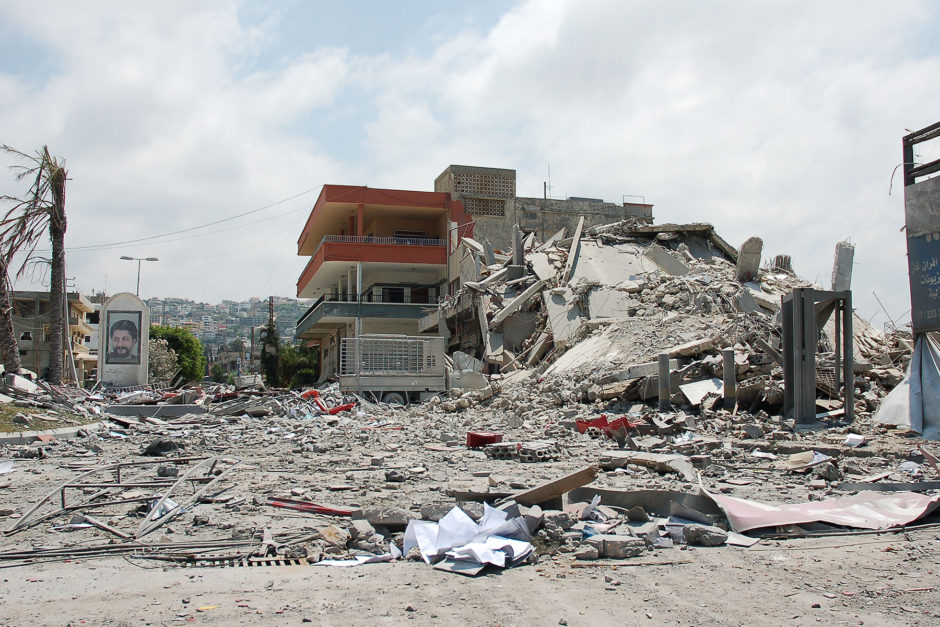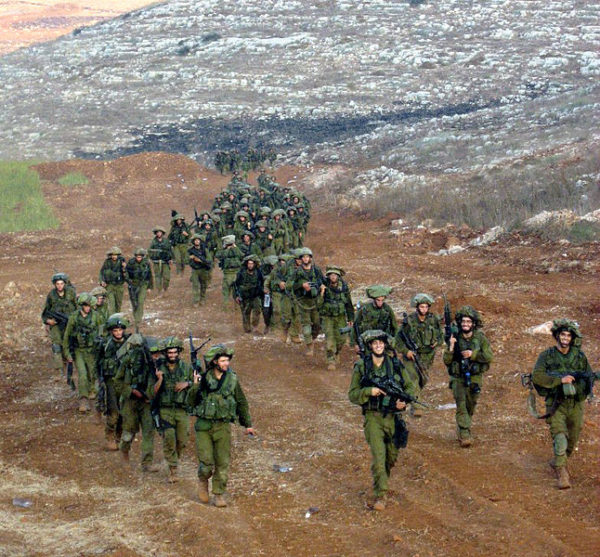
It was like a bolt out of the blue.
Ten years ago this month, the Second Lebanon War erupted, catching Israelis and Israel’s political and military leadership by surprise.
The Lebanese border region had been fairly quiet until then, but on July 12, 2006, it exploded in fury, enveloping Israel in a 34-day war with Hezbollah, the Lebanese Shiite movement supported by two of Israel’s most bitter enemies, Iran and Syria.
The Israeli Air Force inflicted fierce blows on Hezbollah and Lebanon’s infrastructure, but Hezbollah fought hard and fired 4,000 missiles into Israel, displacing several hundred thousand Israelis in northern Israel and paralyzing sectors of Israel’s economy.
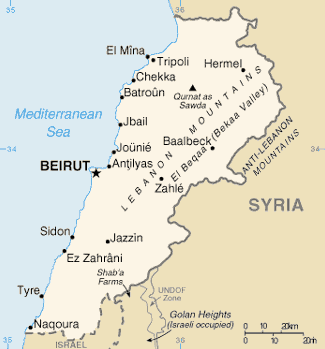
The war ended inconclusively as a truce took hold in mid-August. During the course of the fighting, Israel lost 121 soldiers and 44 civilians, 19 of whom were Israeli Arabs. On the Lebanese side, the war claimed the lives of 1,100 people, including some 500 Hezbollah fighters.
Israel, having pulled out of southern Lebanon in May 2000 after an 18-year occupation, had been relatively satisfied with the status quo along the occasionally tense Lebanese frontier. Since its hasty unilateral withdrawal, there had been few border incidents.
In October 2000, Hezbollah had kidnapped three Israeli soldiers patrolling the border, but aside from that unsettling incident, it had been reasonably quiet for almost the past six years.
On July 12, however, Hezbollah attacked two Israeli armored vehicles on Israel’s side of the border, killing three soldiers and abducting two more, Ehud Goldwasser and Eldad Regev. A further five Israeli soldiers were killed as Israel tried to rescue the pair, who died in captivity.
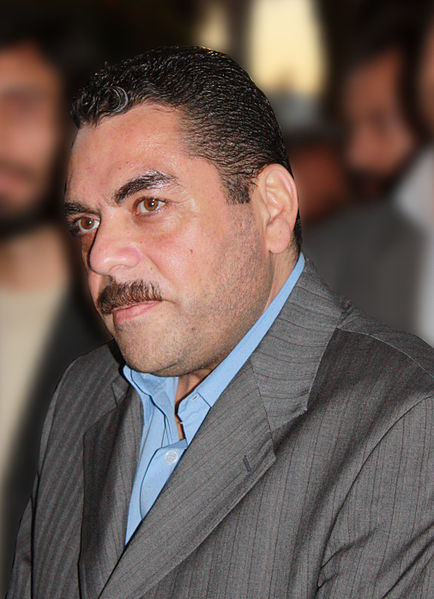
From the outset, Hezbollah demanded the release of prisoners in Israeli jails, notably Samir Kuntar, a Lebanese Druze member of the PLO who had killed two Israelis in a particularly gruesome terrorist raid in Nahariya in 1979.
Calling Hezbollah’s aggression an “act of war,” Israeli Prime Minister Ehud Olmert ordered air strikes and imposed a blockade on Lebanon. In response, Hezbollah fired scores of rockets into Israel, even after Israeli jets had obliterated Hezbollah’s stock of medium-range and long-range rockets.
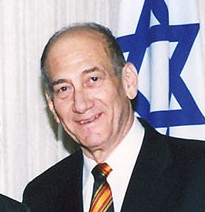
With hostilities raging, Israel’s chief of staff, General Dan Halutz, warned, “We will turn Lebanon’s clock back 20 years.” In quick succession, Israel bombed sensitive targets in Lebanon — the runways of Beirut’s airport, bridges, roads, power plants and so on.
Hezbollah retaliated, hitting residential neighborhoods and army bases in the Galilee, striking a train depot in Haifa (causing eight fatalities), and damaging an Israeli naval vessel (killing four crew members).
Hezbollah rockets also caused grave environmental damage, starting forest fires that scorched some 16,000 acres in the Galilee.
By one account, the Israeli Air Force flew more combat missions in this war than in the 1973 Yom Kippur War. But until its very last day, on August 14, Hezbollah missiles pounded Israel relentlessly, sending an unmistakable message of Hezbollah’s determination and resiliency.
Heads rolled due to the inconclusive outcome of the war. Halutz stepped down, as did Israel’s defence minister, Amir Peretz. He resigned following the release of the Winograd Commission, which had been tasked with examining the prosecution of the war.
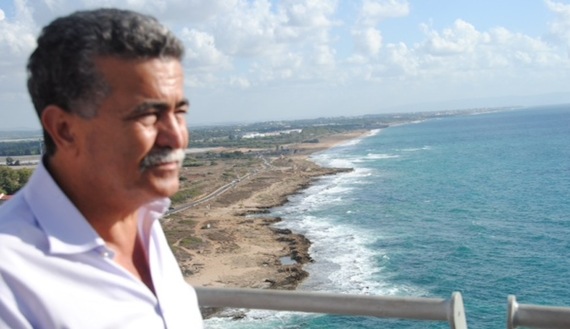
Winograd and his fellow commissioners minced no words.
They criticized Olmert harshly, claiming he had gone to war “hastily” and without an “organized plan.” They said there had been “serious failings and shortcomings in the decision-making process and staff work in the political and military echelons.” They questioned the “preparedness and performance” of the army’s high command. They noted that the army’s ground offensive toward the end of the war had not yielded military gains.
Hassan Nasrallah, the leader of Hezbollah, claimed victory, but candidly admitted he would not have gone through with the cross-border raid in July had he known it would touch off a war with Israel.
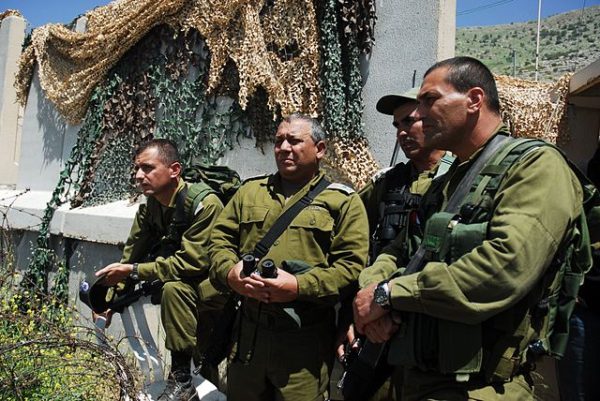
Ten years on, Israel’s current chief of staff, General Gadi Eisenkot, claims that the Second Lebanon War, its failures notwithstanding, has given Israel a decade of relative peace along the Lebanese border, reestablished Israel’s deterrence power with respect to Hezbollah and prompted the Israeli army to improve its capabilities, training regimen and equipment.
Responding to threats by Hezbollah to capture Israeli territory in the next war, Israel has invested heavily in securing the Galilee. Israel has cleared forests, built fences and walled off and created barriers along parts of its border with Lebanon.
Hezbollah, having committed thousands of its troops to the civil war in Syria on behalf of President Bashar al-Assad, is certainly not eager to confront Israel at this fraught juncture. Logic would dictate that Hezbollah will try to avoid a two-front war at all costs.
Nonetheless, Hezbollah is preparing for a new war with Israel, according to an Israeli battalion commander stationed on Israel’s border with Lebanon.
Lt. Col. Eliav Elbaz recently told Channel 2 that Hezbollah is “obsessively” gathering intelligence about Israel. “Right now, they’re up to their necks in the war in Syria,” he said, “but we still see them … scouting Israeli positions. It’s reminiscent of what they did before the Second Lebanon War.”
As Prime Minister Benjamin Netanyahu acknowledged a few months ago, Israel has carried out dozens of air strikes against Hezbollah arms convoys bound from Syria to Lebanon. But Hezbollah still has managed to amass an arsenal of more than 100,000 rockets.
Israel’s former Home Front commander, Yitzhak Gershon, warned Israelis last month that Hezbollah is now capable of hitting Israel with more than 1,000 rockets per day in the event of a war.
“If in the Second Lebanon War the record was 160 rockets in a day, we need to expect up to 1,200 rockets in a day,” he said. “It will be a completely different scenario from anything we’ve known.”
During the 1960s, 1970s and 1980s, the PLO bombarded Israeli communities in the Galilee and the Jordan Valley. In 1991, 39 Iraqi Scud missiles crashed into Israeli cities. During the 2014 Gaza war, Hamas rockets rained down on Israel.
From the 1956 Sinai War to the first war in Lebanon in 1982, Israel’s home front was more or less safe from enemy rocket bombardments. But since the first Gulf War, when Iraqi strongman Saddam Hussein targeted Israel’s coastal plain, Israeli urban areas have been vulnerable to rocket attacks. This may account for Israel’s reluctance to make good on its sporadic threats to bomb Iran’s nuclear facilities.
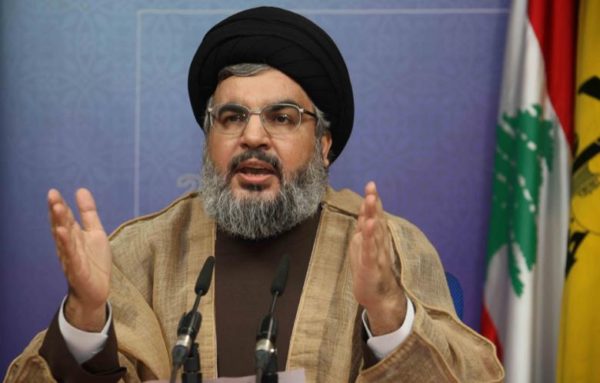
But as Israeli deputy chief of staff Yair Golan warned recently, Israel would not hesitate to unleash a “devastating” barrage on Lebanon should another war with Hezbollah break out.
A future war, he added, will be “much harsher” than previous wars in Lebanon.
It remains to be seen whether Hezbollah will exercise restraint and maintain the status quo. But as the Second Lebanon War demonstrated, a spark can ignite a fire.
